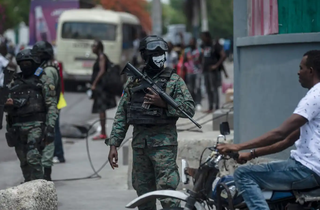A deepening security crisis fueled by gang violence has collided with a devastating hunger crisis, leaving nearly half the population – almost 5 million people – grappling with severe food insecurity.
Armed gangs have seized control of over 90% of the capital, Port-au-Prince, and their influence extends far beyond. This rampant violence has disrupted agricultural production in the Artibonite Valley, the country's breadbasket. Farmlands have been taken over, harvests stolen, and farmers too afraid to plant or tend their crops.
Skyrocketing inflation has pushed basic necessities out of reach for many Haitians. The cost of food has soared, leaving families struggling to afford even the most basic meals.
Below-average rainfall has resulted in poor harvests, further exacerbating food shortages. This lack of rain compounds the existing problems caused by gang violence, creating a perfect storm of hunger.
Despite the valiant efforts of aid organizations, their reach has been severely restricted. Security concerns and a lack of funding have hampered the ability to deliver essential food assistance to those most in need. A recent report highlights that only 5% of the population received food assistance between August and December 2023.
The latest Integrated Food Security Phase Classification (IPC) analysis paints a grim picture. Nearly 5 million Haitians are classified as experiencing acute food insecurity, with over 1.6 million people teetering on the brink of famine (IPC Phase 4 - Emergency). This translates to millions of Haitians going hungry every day, with children, pregnant women, and the elderly being the most vulnerable.
Fleeing the violence and desperation, over 33,000 people have abandoned their homes in Port-au-Prince. They have joined the ranks of the estimated 362,000 internally displaced persons (IDPs) scattered across the country. These displaced Haitians face precarious living conditions, often lacking access to proper sanitation, clean water, and healthcare. (ILKHA)



 Güncel
Güncel
 Röportaj
Röportaj
 Dünya
Dünya
 Dünya
Dünya
 Güncel
Güncel
 Güncel
Güncel
 Güncel
Güncel
 Güncel
Güncel
 Dünya
Dünya
 Güncel
Güncel





